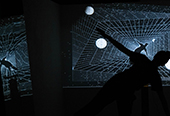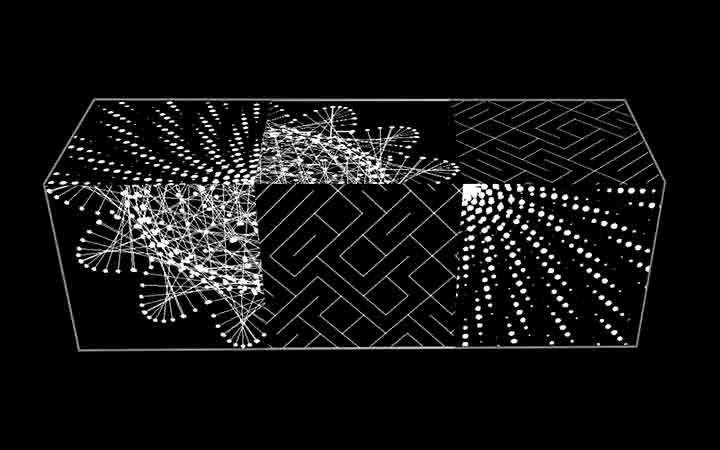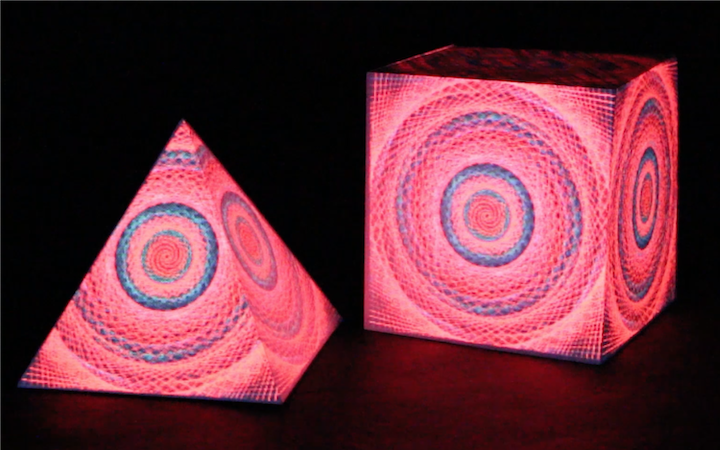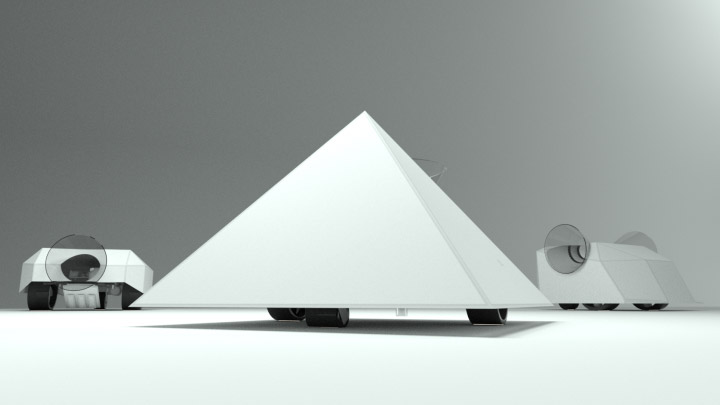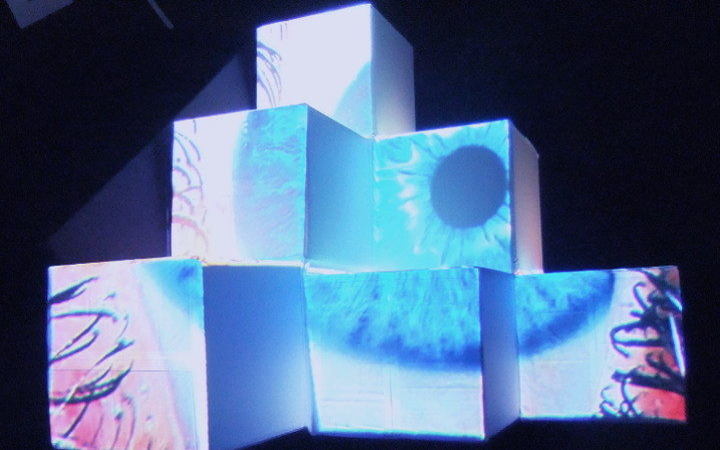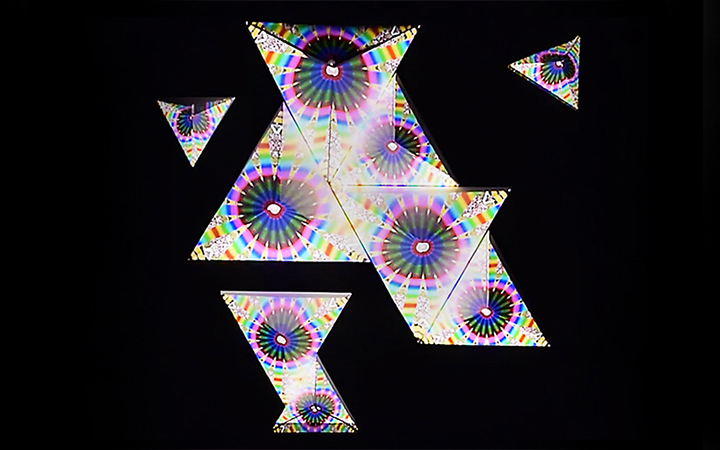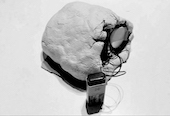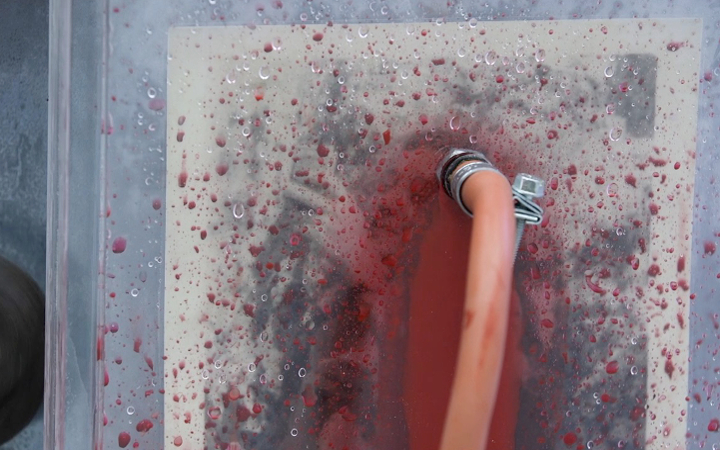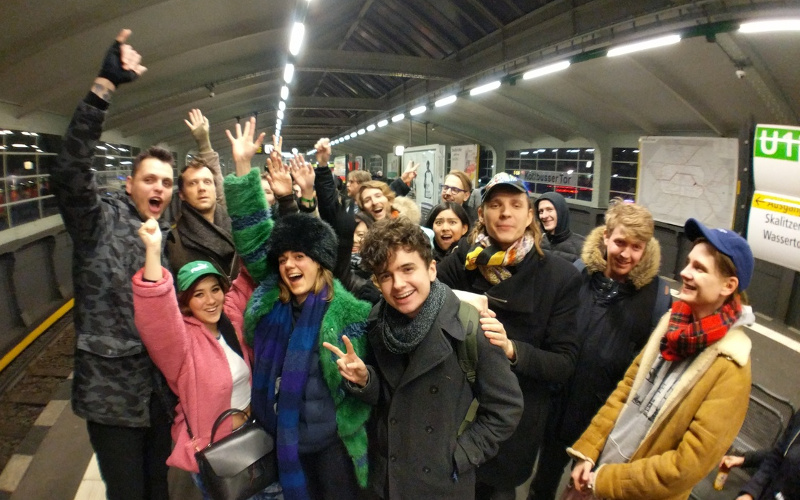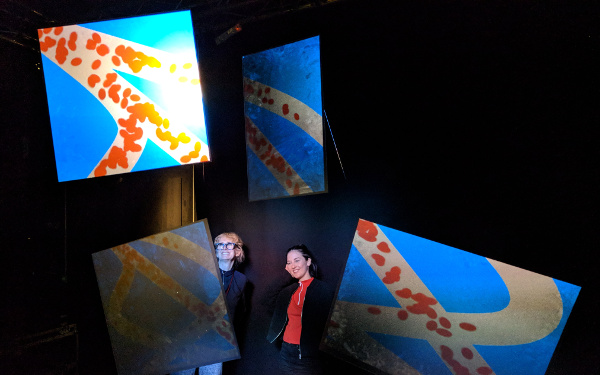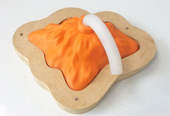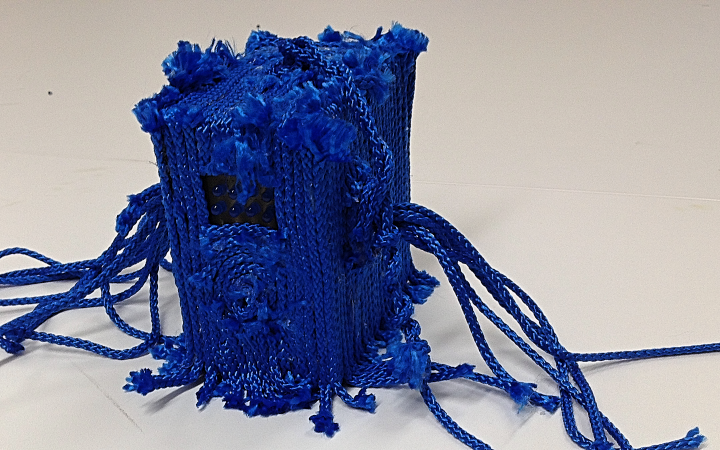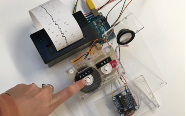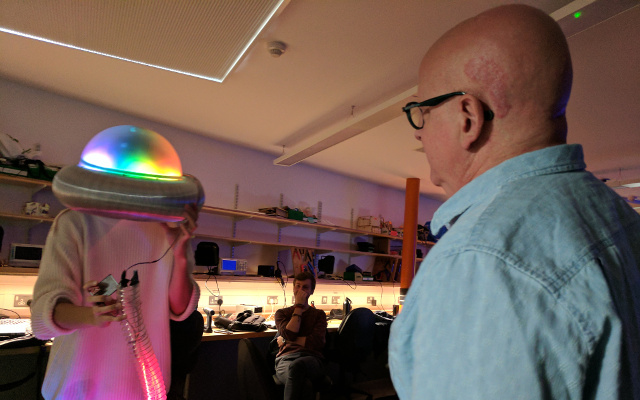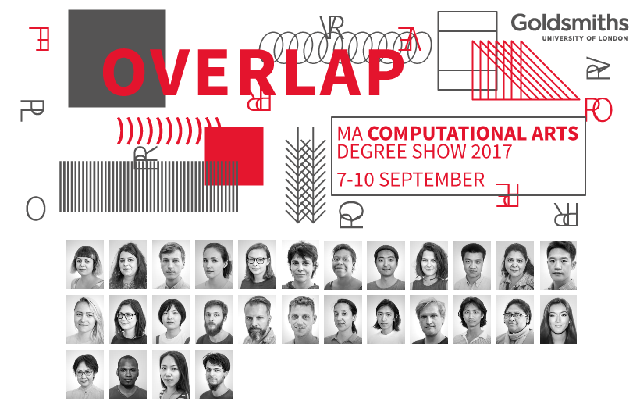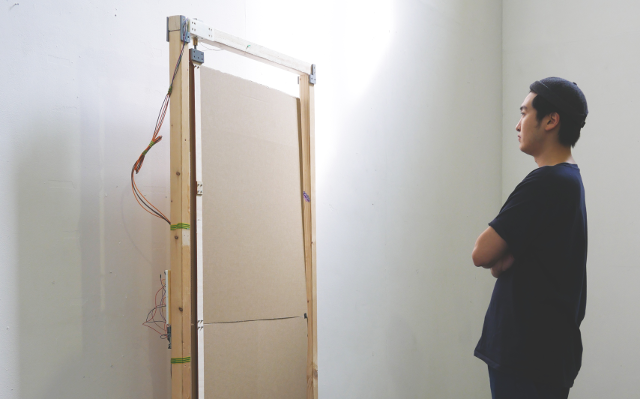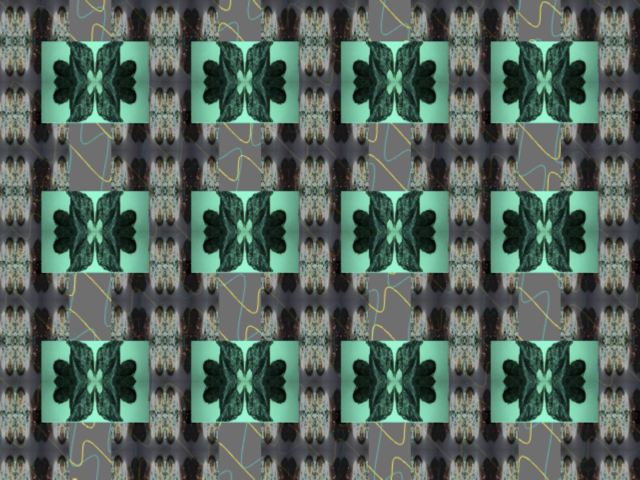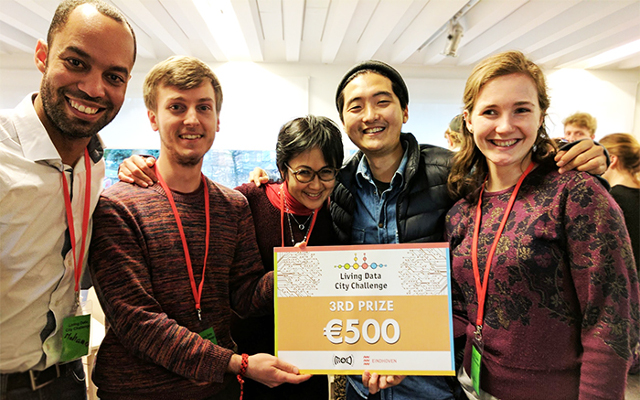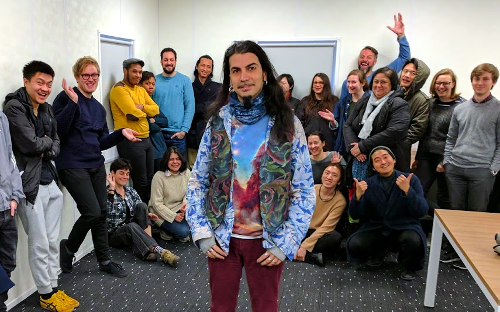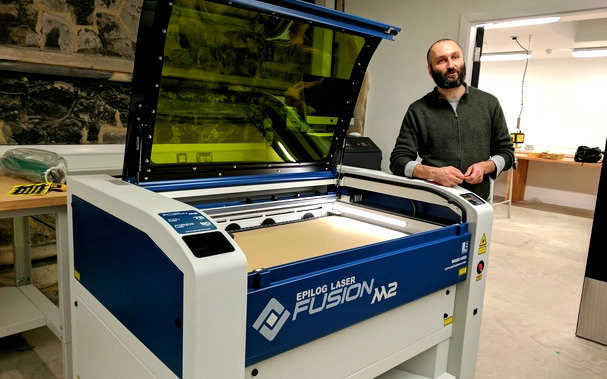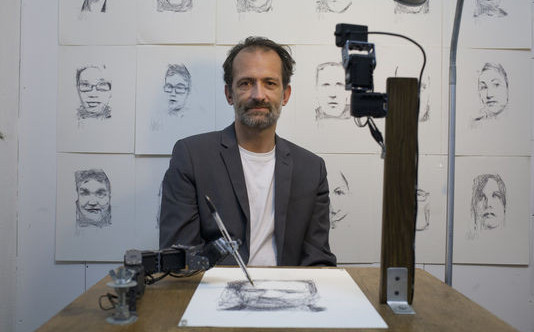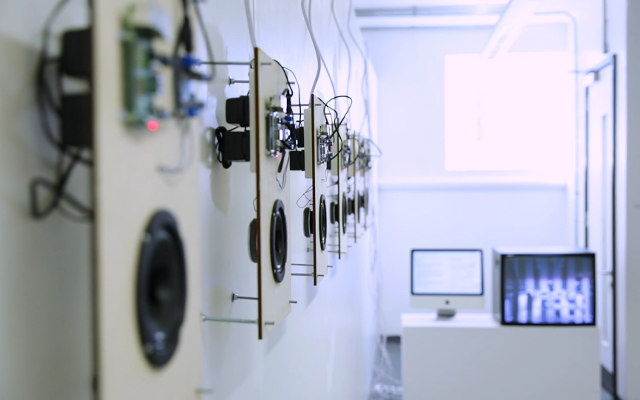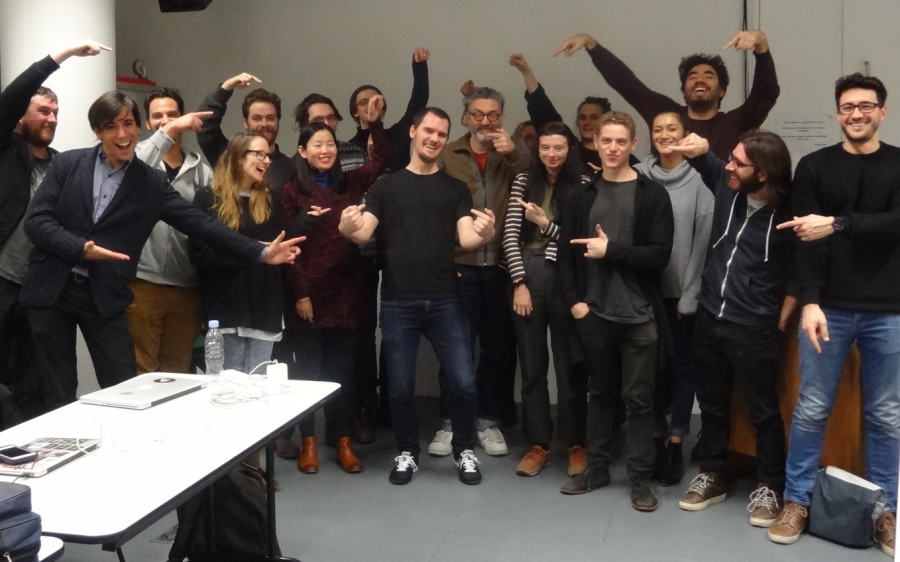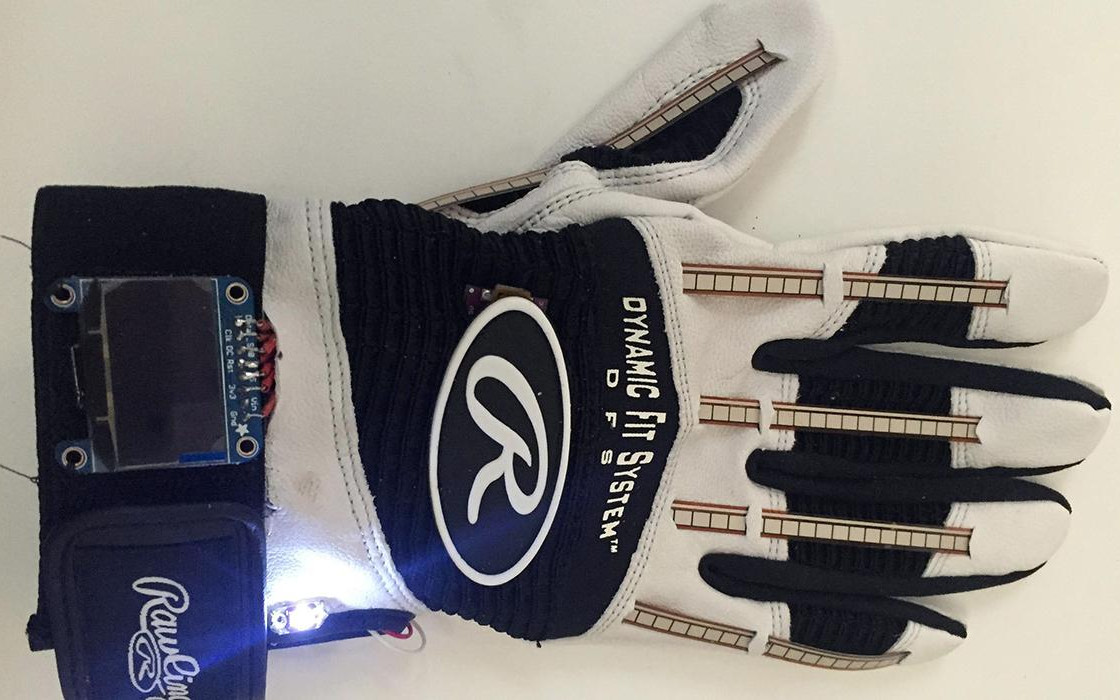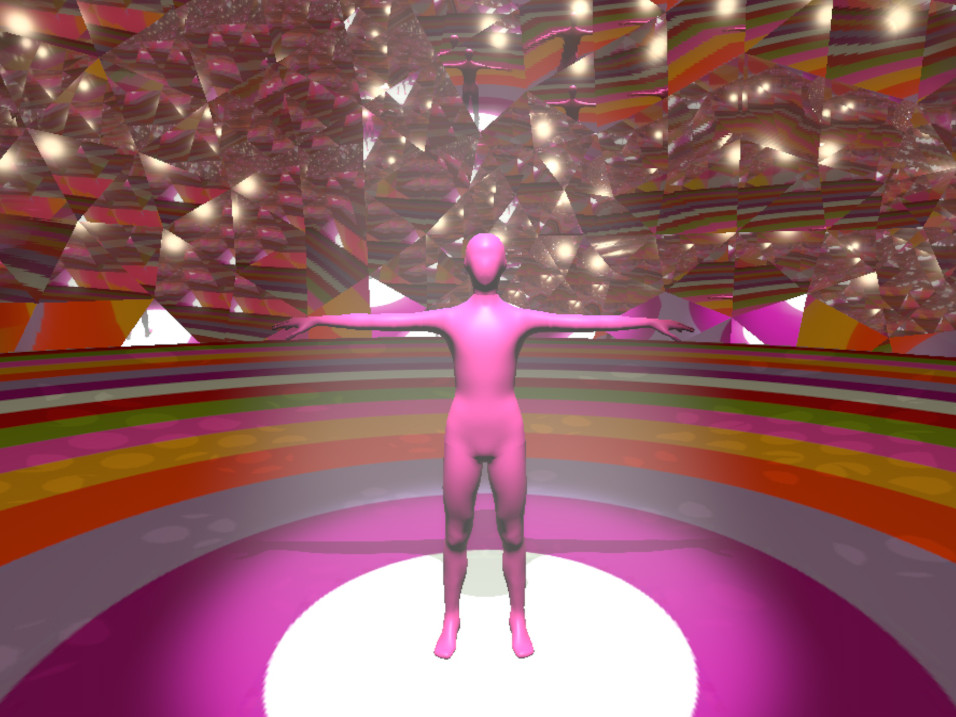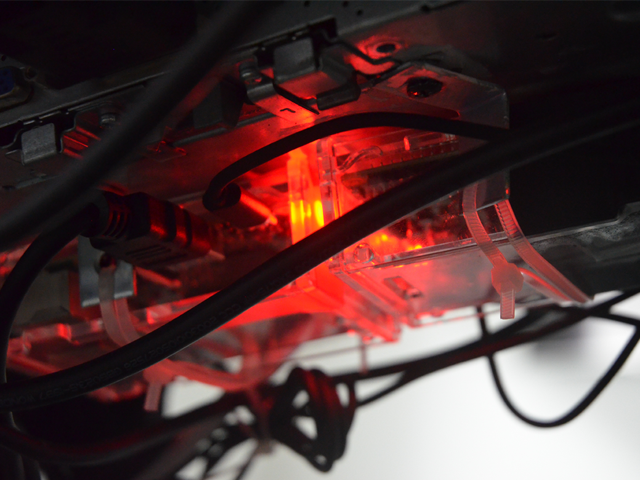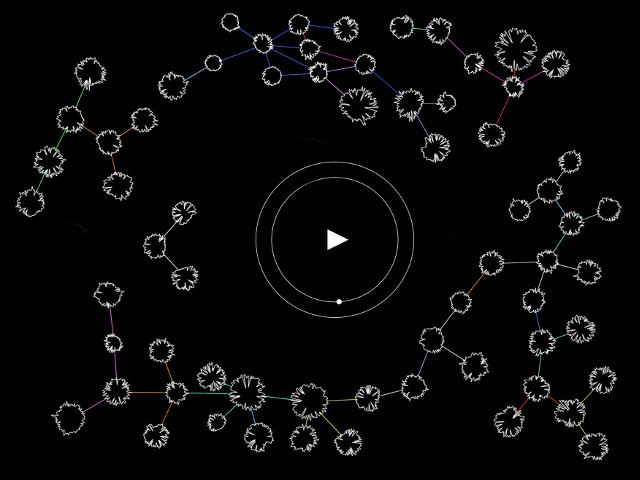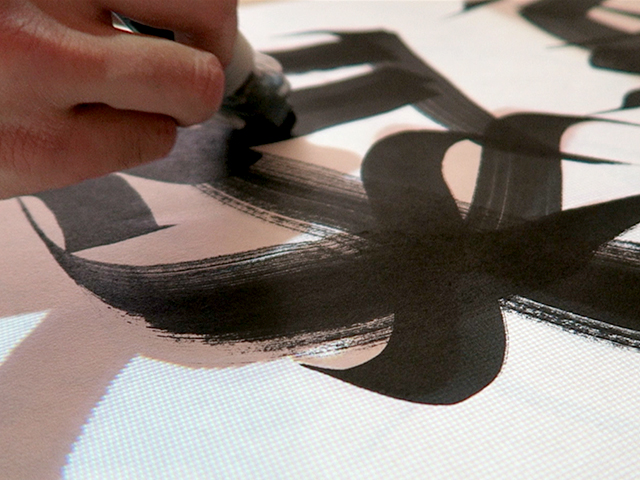Some Things Are Hard To Say:
An Exploration of Critical Making, Speculative Design, and Reconfiguration.
Feminist Technoscience provides the framework for a speculative device which allows a convenient way to express thoughts and feelings that can be difficult to vocalize.
created by: Rachel Max
The Effects of Technology on Interpersonal Relationships
Advances in technology such as the invention of computers, the internet, mobile devices, and fitness trackers have had a huge impact on the way we communicate, work, and care for ourselves. Technology has enabled automation of many interactions which used to involve people. Voice response systems are used in customer service, auto-checkout lanes are increasingly used in grocery stores, and robots deliver food. Virtual assistants make appointments, anticipate needs, and sometimes even banter in conversation. Interaction with technology is not new but advances in Artificial Intelligence are greatly accelerating the ways in which technology is incorporated into daily life (Allen).
New connective technologies have had unintended consequences on the meaningfulness of interpersonal communication. In her 2011 book Alone Together: Why We Expect More from Technology and Less from Each Other, professor Sherry Turkle discusses how current technology is undermining human connection. She proposes that convenience and control are prioritized while diminishing the expectations human beings have of each other (Turkle, p. 1) .
In his 2010 Psychology Today article The Effect Of Technology On Relationships, Dr. Alex Lickerman writes that he has “observed people using electronic media to make confrontation easier and have seen more than one relationship falter as a result. People are often uncomfortable with face-to-face confrontation …. In-person interactions, though more difficult, are more likely to result in positive outcomes and provide opportunities for personal growth. Whenever I hear stories of romantic break-ups, firings, or even arguments going on electronically, I cringe. We find ourselves tempted to communicate that way because it feels easier—but the outcome is often worse.”
For this project, I imagined a future where machines are our voices and how those machines could be used to vocalize thoughts and emotions that are difficult to express. Since technology is presently utilized as an alternative to in-person communication and because research shows people tend to avoid difficult conversations, this artefact is an exploration of what it would be like to hear something like “I love you” from a convenient touch of a button. Although it is easier to press a button to express a difficult emotion, the intended recipient would not find the experience as meaningful as if the emotion had been expressed directly by the user.
Our relationships with others define who we are. How would relationships be reconfigured by a device such as this? I wanted to explore the distributions between humans and non-humans - where the human ends and where a machine begins (Suchman).
This interactive communication artefact is simultaneously humorous and disconcerting and is intended to stimulate discussion and reflection about the ethical and social implications of existing and emerging technologies on interpersonal relationships.
Read more here.
Source code and Presentation PDF:
https://www.bareconductive.com/make/setting-up-arduino-with-your-touch-board/
http://rachelmax.com/Downloads/Touch_MP3.zip
http://rachelmax.com/Downloads/ResearchandTheoryPreso_RMAX.pdf
References:
Allen, Chris. “How the Digitalisation of Everything Is Making Us More Lonely.” The Conversation, 2 May 2018, theconversation.com/how-the-digitalisation-of-everything-is-making-us-more-lonely-90870. Accessed 13 May 2018.
Franke, Björn. Design as a Medium for Inquiry. Fifth Swiss Design Network Symposium, Multiple Ways to Design Research – Research Cases that Reshape the Design Discipline (2009), pp. 225–232
Lickerman, Alex. “The Effect Of Technology On Relationships.” Psychology Today, Sussex Publishers, 8 June 2010, www.psychologytoday.com/us/blog/happiness-in-world/201006/the-effect-technology-relationships.
Malpass, Matthew. Critical Design in Context: History, Theory, and Practices. Bloomsbury Academic, an Imprint of Bloomsbury Publishing Plc, 2017. Digital. Kindle Edition.
Ratto, Matt. “Critical Making: Conceptual and Material Studies in Technology and Social Life.” The Information Society, vol. 27, no. 4, 2011, pp. 252–260
SIGCHI, ACM, director. CHI 2010 Lifetime Research Award: Lucy Suchman. YouTube, YouTube, 18 Mar. 2016, www.youtube.com/watch?v=nwHxMWtP_-M.
Turkle, Sherry. Alone Together: Why We Expect More from Technology and Less from Each Other. Basic Books, 2017.
Suchman, Lucy. Human-Machines Reconfigurations: Plans and Situated Actions. Cambridge University Press, 2009.


